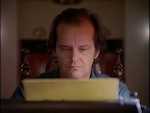Right FIT #332 – This week: Leaving it, Future you, Writing

GREG’S BUSINESS GROWTH NEWSLETTER #332
————————————————————
Quick notes to help you grow your business in less time with less effort. . . sometime next week.
In this issue:
– Techniques for FIT
– Being Human
– Random Stuff
Techniques for FIT
——-
- Buying a tree the salesman says when in doubt, leave it alone. Plants know the goal is to live and have figured out how to survive. The same advice can be applied to your people. Give the goal, and they’ll figure out how to get there.
- Look at replies on social media to see why meetings are alternately frustrating and necessary. Frustrating because everyone has a different take. Necessary because people see things differently.
- Schedule regular reviews with your banker, insurer, financial advisor, and accountant. Track their questions and recommendations. Are they in line with your vision and what you know about your industry? If not, educate them.
- Just because you can doesn’t mean you should. Also, just because you haven’t done it before doesn’t mean you shouldn’t try. We weren’t put here to optimize. It’s ok to try new things, be an amateur, and be bad at it.
Being Human – Future you
————————————————————
“Our behavior is a function of our decisions, not our conditions.”
― Stephen Covey

I make jokes referring to Future Greg here and there. As in Future Greg will be happy, or Future Greg is going to have to work hard to pay this off kind of thing. It’s not just a thing I joke about, though. I offer it as advice to clients working through change.
The first time I bumped into Future Greg is when I was graduating from college. A new book was making the rounds, Steven Covey’s “The 7 Habits of Highly Effective People.” I remember one habit from the book, the story about talking to your deathbed self. The last Future Greg so to speak. The habit is “Begin with the End in Mind,” but the story in my head is where you imagine talking to your deathbed self about a decision you’re making today. It is advice, one could say, that’s highly effective.
The problem with it is your deathbed future self may say something different from your next year future self. The time frame is important because talking to Future Self 2023 may yield different decision advice than your 2025 version. This doesn’t just apply to individual decisions. You can ask Future Firm the same questions. Better than that, you can get your people to ask Future Firm for help with decisions too.
To get started, bring up your future self in conversation. It’s funny at first, then your people, getting concerned, will ask you about it. It’s your chance to tell them about Future Self and Future Firm’s decision-making wisdom.
How do I know it works? In passing, I heard one of my kids reference querying advice from their Future Self.
Good stuff.
Random stuff
————————————————————
“If you want to be a writer, you must do two things above all others: read a lot and write a lot. There’s no way around these two things that I’m aware of, no shortcut.” – Stephen King

On occasion someone will ask me about my writing process. Morning vs evening, note-taking, outlines, and so on. How do I keep long term projects like book proposals on track while writing assessments, summaries, and weekly newsletters?
The most helpful advice I was given is having a routine. Build some momentum. I write in the morning. I use the timer on my phone and give myself an uninterrupted twenty minutes to an hour each day. When the alarm tells me to end a writing session I don’t finish my thought, but instead make some notes on what I should write tomorrow.
I wear headphones when I write. I have a pair of over the ear Sony studio headphones but lately have been using my dorky noise-canceling headset. The one with the orange cord and the microphone boom. With all the construction in the house and neighborhood it helps muffle the extraneous noises.
I listen to classical piano music. Right now I’m on a Martha Agerich kick. Her albums are long, and I don’t know any of the music, keeping me focused. The funny thing about listening to classical music is the recordings are not made in soundproof studios. They are live and with headphones on you can hear the room. There is a shuffling as everyone settles in for a listen. There are times you can hear the artist’s breathing. It’s a very intimate experience. I can imagine being in a conservatory on an uncomfortable folding chair fumbling with my program trying to look smart and listen.
There are times when you hear distracting things in the background too. Sometimes it’s a chair squeak, other times a cough. It’s jarring because it sounds like they’re in the room with you. As I write I hear someone sneeze. It’s a loud, distinctive “Ahh-choooo” but it’s distant, like the person is in the back of the room.
Then I hear a second sneeze. My train of thought is broken. I think wow, they are committed to getting this performance on tape. It’s almost unprofessional. I can’t believe they let that person stay in the room. By the time the third sneeze comes I am out of my chair because I’ve heard this sneeze before. Many times. It’s the long hold on the “choooo” part of that gives it away. Now distracted, I take off the headphones and peek around the corner at my lovely bride.
“What?” she says, dabbing tissue to her nose. “I’m sorry, I can’t help it.”
————————————————————
If you need to set up a time to visit, follow this link:
https://calendly.com/chamberspivot/

